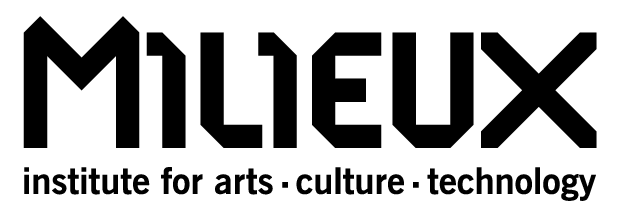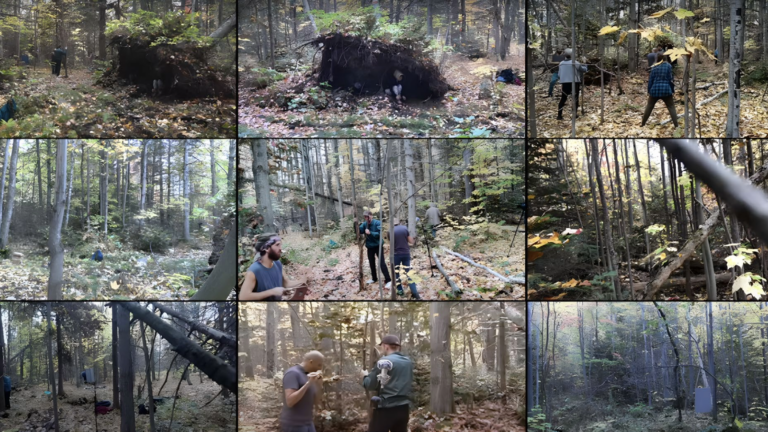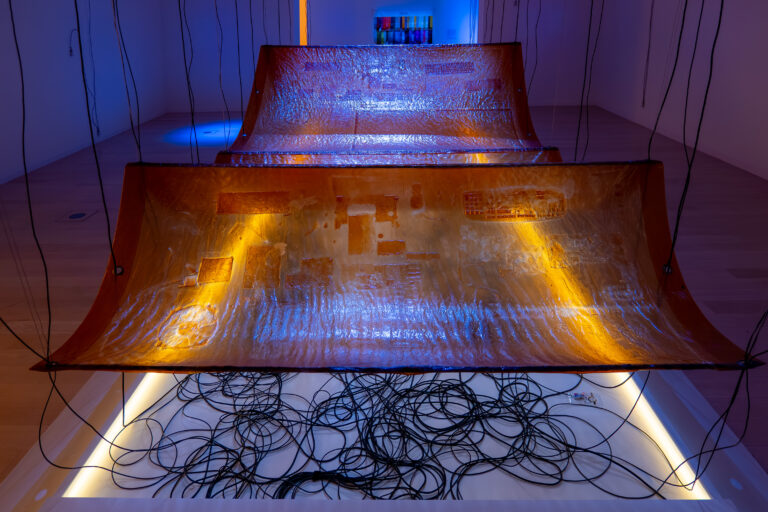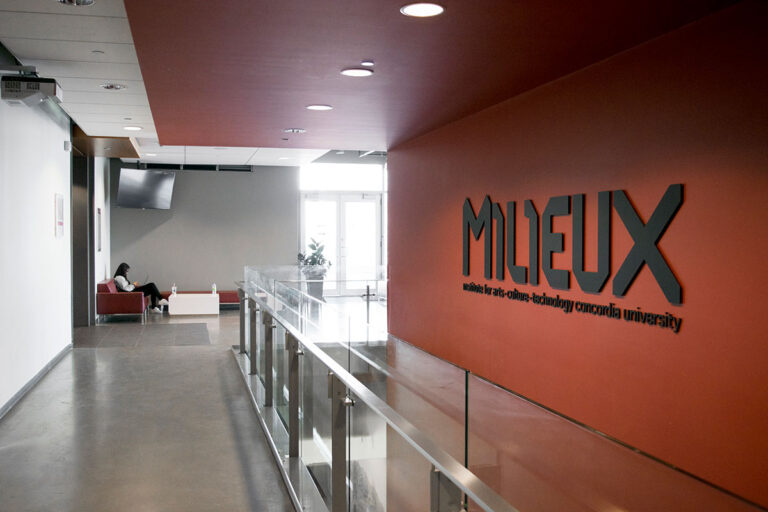Soprano and performance creator Misha Penton visited Milieux’s performing arts research cluster, LePARC.
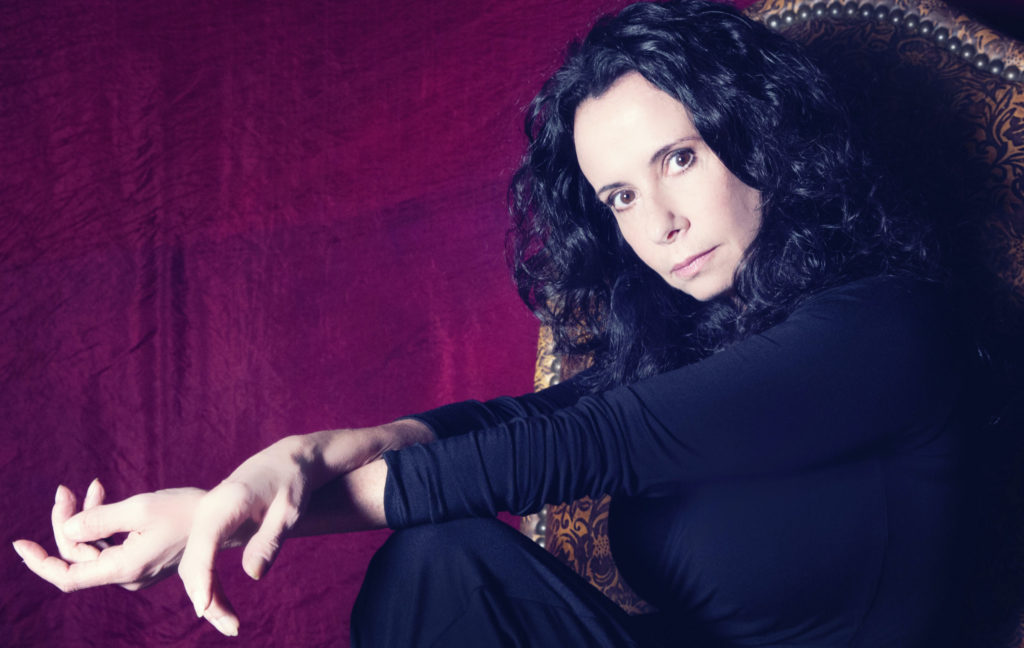
Misha Penton is a soprano, performance creator, composer, director, and filmmaker. She traveled to Montreal to lead a multi-day voice and performance workshop for Milieux members and the community. We got a chance to chat with her about the experience.
Q: What brought you to Milieux?
A: I’m a doctoral candidate in voice and music at Bath Spa University in the UK. I came to LePARC at Milieux through the Global Academy of Liberal Arts (GALA), which facilitates collaborative and creative exchanges across member institutions.
Q: How would you describe your experience at Milieux in three words?
A: Inspiration. Creativity. Openness.
I had an inspiring and fruitful experience with a lot of time and freedom to explore new work. Concordia Professor of Music Sandeep Bhagwati generously offered the use of the matralab for my visit: a multidisciplinary space for performance work.
I worked on a new solo voice performance piece, and conducted a voice and performance devising workshop for students and community members in the matralab.
Q: What did students learn in the workshop?
A: We explored breath, vocal sound, text, and movement through group improvisation. ‘Devising’ is an experimental and collaborative approach to performance composition and creation, and I offered explorations that encouraged ideas to emerge through group creative processes.
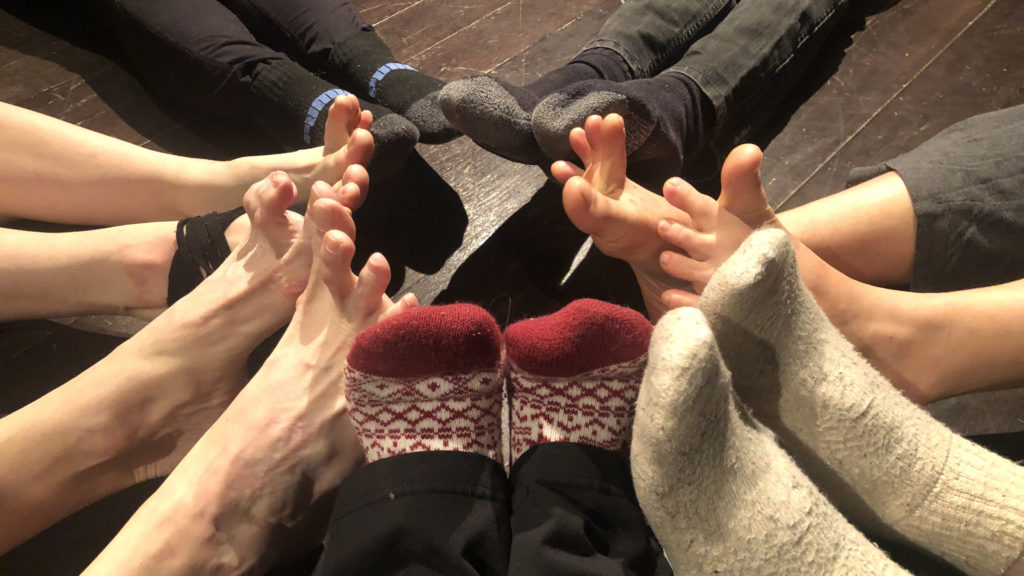
It’s a deceptively simple, collaborative, and intuitive way of working that requires concentration, trust, and openness from the group. For example, the creation of a devised sound world might be something as simple as everyone laying on the floor, breathing, listening, and responding with voice, as gentle vocal tones arise, recede, and change.
A more physically theatrical engagement might be for a group to walk around the space with awareness: Am I moving fast or slowly? How is the person nearest to me moving? Are they standing? Sitting? Crawling? How might I come into relationship with their body?
What happens if I move faster or slower, forward or backward, rise on tiptoe, squat, or come to stillness? When I pass by someone in the space, stop and touch their shoulder or hand, what changes?
Sound and text may be woven into this kind of physical “game.” The magic of this practice is that, with gentle constraints, work tends to emerge on its own— from a kind of group intelligence powered by individual creativity.
Q: What was your favorite moment?
A: I was moved by the commitment, sensitivity, and energy that both Concordia students and community members of diverse backgrounds contributed to the workshop. I was taken aback by the beauty of what emerged: vocal explorations and interactions of bodies in space became mini theatrical voice pieces.
There was a lot of creativity in the room, as well as a sense of letting go of the “inner critic,” which allowed the creative process to gently unfold on its own. I was heartened by students who shared that they felt creatively ‘unblocked’ after the workshop. I’m grateful to the participants for their attentiveness to the process and I’m returning home inspired and energized!
Q: What advice would you give to students who are interested in performance-making but weren’t able to attend the workshop?
A: Allow your creative work to develop in an uncensored way — especially in the beginning. Discernment and editing come later, after you have permitted abundant creative “play time.” The creative process will emerge on its own, if you let it: set the conditions for it to flourish.
Milieux’s Performing Arts Research Cluster, LePARC, hosts researchers and artists to give workshops, performances, and other forms of shared inquiry, open to all members and the public. Learn more about LePARC by visiting their website.
Learn more about Misha Penton’s work at mishapenton.com.
